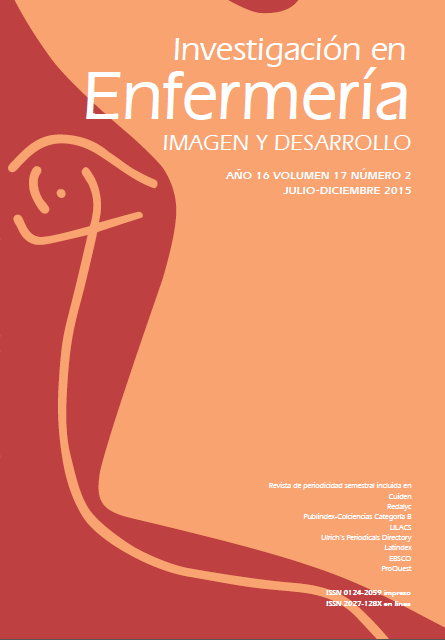Abstract
Objective: This study sought to identify the design of nursing students on health education analyzing the educational activities carried out by students in the care process. Methodology: A qualitative assessment that the analysis of the content of Bardin used as methodological. We interviewed 15 nursing students from last year. Results: Two categories emerged: The concept of ES, the conceptions about being an agent educator and develop the practice of educational action; disciplines that address the ES and the situations experienced in educational activities that have been implemented. Conclusion: The knowledge imparted is technical-scientific, the focus of the action is curative and returned to the idea of preventing disease complications. There are concepts that advance toward the emerging concept of dimension ES transformative action, focusing on problem solving and changes in health reality.
The journal Investigación en Enfermería: Imagen y Desarrollo is registered under a Creative Commons Attribution 4.0 International Public License. Thus, this work may be reproduced, distributed, and publicly shared in digital format, as long as the names of the authors and Pontificia Universidad Javeriana are acknowledged. Others are allowed to quote, adapt, transform, auto-archive, republish, and create based on this material, for any purpose (even commercial ones), provided the authorship is duly acknowledged, a link to the original work is provided, and it is specified if changes have been made. Pontificia Universidad Javeriana does not hold the rights of published works and the authors are solely responsible for the contents of their works; they keep the moral, intellectual, privacy, and publicity rights.
Approving the intervention of the work (review, copy-editing, translation, layout) and the following outreach, are granted through an use license and not through an assignment of rights. This means the journal and Pontificia Universidad Javeriana cannot be held responsible for any ethical malpractice by the authors. As a consequence of the protection granted by the use license, the journal is not required to publish recantations or modify information already published, unless the errata stems from the editorial management process. Publishing contents in this journal does not generate royalties for contributors.


